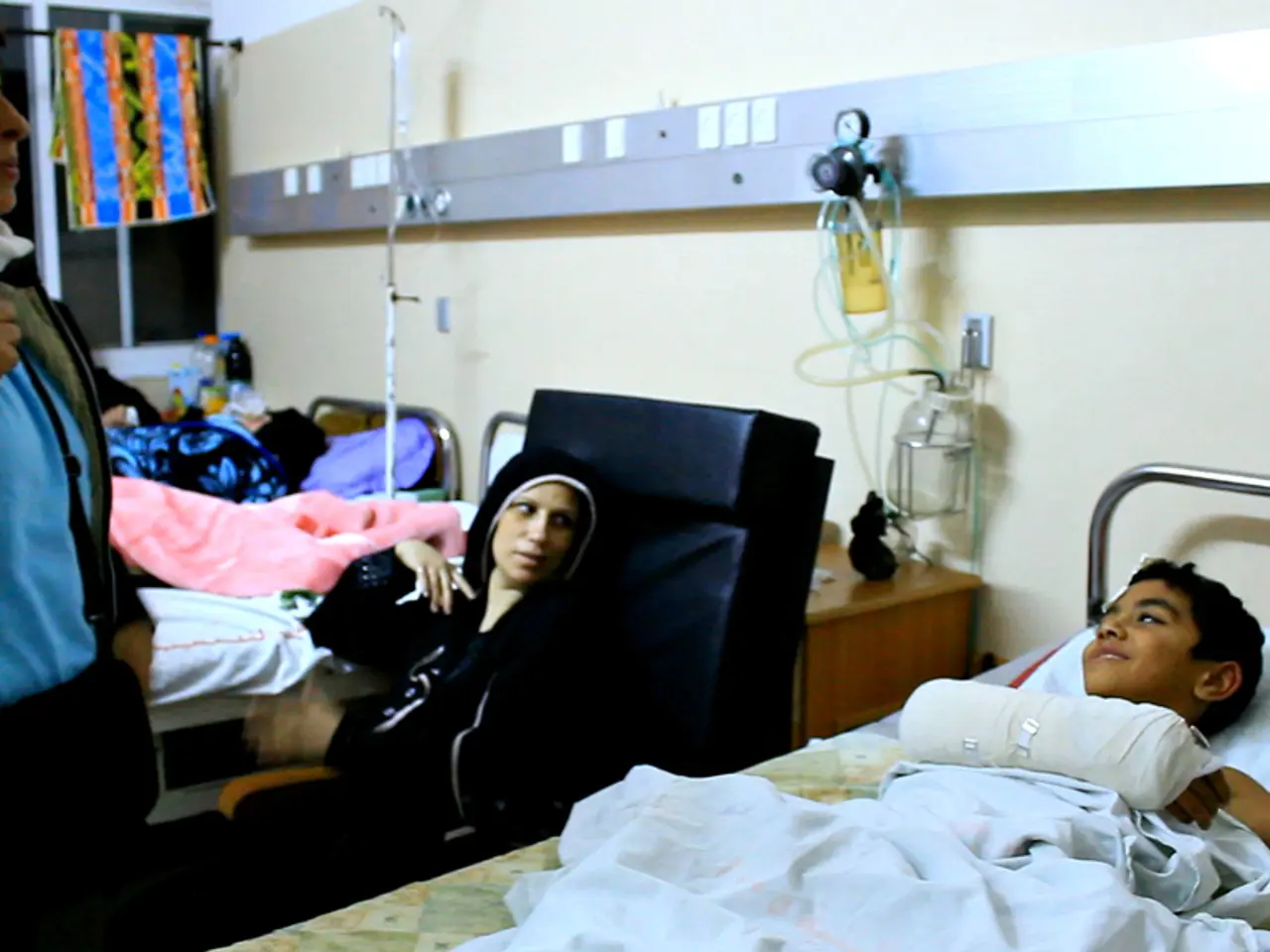Artificial Intelligence outperforms physicians in predicting lethal post-operative complications
In a groundbreaking study conducted by Johns Hopkins University researchers, a team led by the lead author Carl Harris, a PhD student in biomedical engineering, has developed an artificial intelligence (AI) model that can potentially save lives by predicting potential deadly complications after surgery.
The study, published in the British Journal of Anaesthesia, focused on analyzing preoperative ECG data from 37,000 patients who had surgery at Beth Israel Deaconess Medical Center in Boston. The ECG, a standard pre-surgical heart test, was used in the study.
The AI model, which was developed to create a more accurate way to predict health risks before surgery, significantly outperformed risk scores currently used by doctors. In fact, the AI model trained on ECG data alone predicted complications better than current risk scores. However, the "fusion" model, which combined ECG data with patient medical records, had an accuracy of 85% in predicting post-surgical complications.
The team, which includes Zachi I. Attia, Paul A. Friedman, David M. Noseworthy, Peter A. Noseworthy, Robert D. Stevens, Anway Pimpalkar, Ataes Aggarwal, Jiyuan Yang, Xiaojian Chen, Samuel Schmidgall, Sampath Rapuri, Joseph L. Greenstein, Casey O. Taylor, and others from the Johns Hopkins School of Medicine and the Whiting School of Engineering, is interested in determining what other information might be extracted from ECG results through AI.
Robert D. Stevens, chief of the Division of Informatics, Integration, and Innovation at Johns Hopkins Medicine, is the senior author of the study. He explains that the AI model turns standard and inexpensive test results into a potentially lifesaving tool.
The new AI model found previously undetected signals in routine heart tests that strongly predict potential deadly complications after surgery. The team has also developed a method to explain which ECG features might be associated with a heart attack or a stroke after an operation.
The study was supported by the National Science Foundation Graduate Research Fellowship DGE2139757. It was posted in the categories Health and Science+Technology. The findings are a significant step forward in the field of AI and healthcare, and the team plans to further test the model on datasets from more patients and test it prospectively with patients about to undergo surgery.
Read also:
- Leeds set for a healthier future through new collaborative endeavor
- Eight strategies for promoting restful slumber in individuals with hypertrophic cardiomyopathy
- Exploring the Strength of Minimally Digestible Diets: A Roadmap to Gastrointestinal Healing
- Secondhand Smoke: Understanding its Nature, Impact on Health, and Additional Facts





